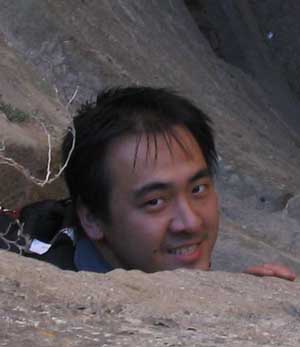David Yu Zhang
The NewScientist article Molecular “amplifier” boosts DNA computing said
“DNA-based computing just got a big boost. A method of amplifying weak chemical signals in a way that can be tailored to specific molecules has brought DNA-based circuits closer to practical applications.Now David Zhang in Winfree’s group and colleagues have shown how to perform DNA amplification without the use of enzymes, making the process simpler and much more configurable, since it can be tailored to any DNA strand.
The process makes use of the fact that complimentary stretches of DNA will bind together. A ‘catalyst’ strand of DNA is used to pull another strand free from several strands bound together.”
David Yu Zhang is Graduate Student, Computational Neural Systems Hertz Fellow, Caltech. His research interests are: Specific measurement of nucleic acid concentration dynamics (chemical oscilloscope), Non-enzymatic DNA-based catalysis (chemical fuels), Hybridization-based DNA logic gates (chemical logic), Bistable and winner-take-all circuits (chemical memory), Autonomous chemical oscillatory networks (chemical timing), Localized signal integration and thresholded output response (chemical neuron), String matching algorithms, and Cellular automata and error correction.
Dave authored An Enzyme-Free Triplex-Based NAND Gate, and coauthored A DNA superstructure-based replicator without product inhibition, FFT-based Algorithms for the String Matching with Mismatches Problem, A Clocked DNA-Based Replicator, Enzyme-Free Nucleic Acid Logic Circuits, Entropy-Driven DNA-Based Catalyst System, In Vitro Transcriptional Circuits, Multiplexing and M# Measurement in Spectral Hole Burning Medium, Derivation and Measurement of the M# in Spectral Hole Burning Media, and Engineering Entropy-Driven Reactions and Networks Catalyzed by DNA.
Dave earned a B.S. at the California Institute of Technology in 2005 and is expected to earn a Ph.D. at the California Institute of Technology in 2009. He has the patent Nucleic acid-based logic circuits.
